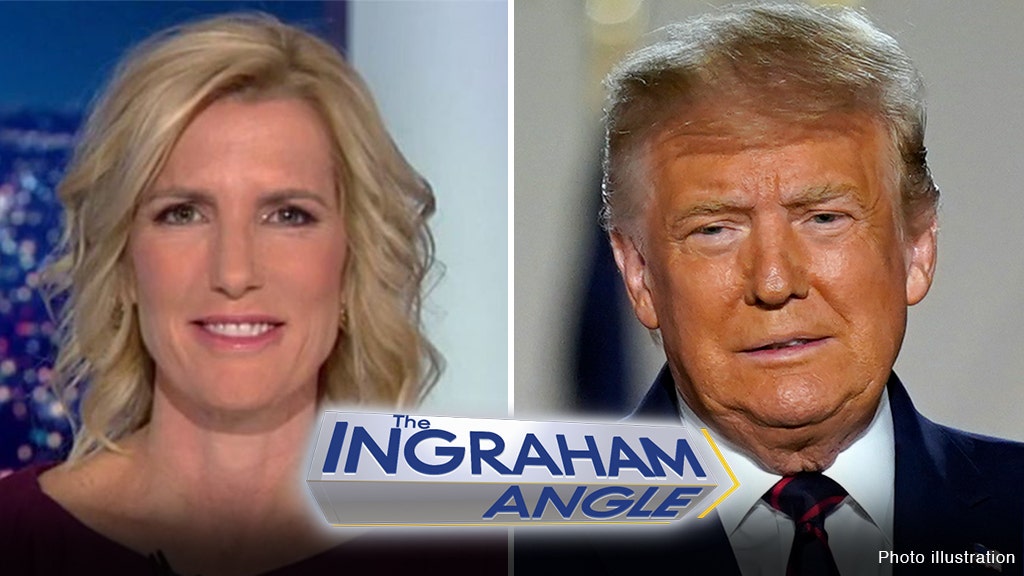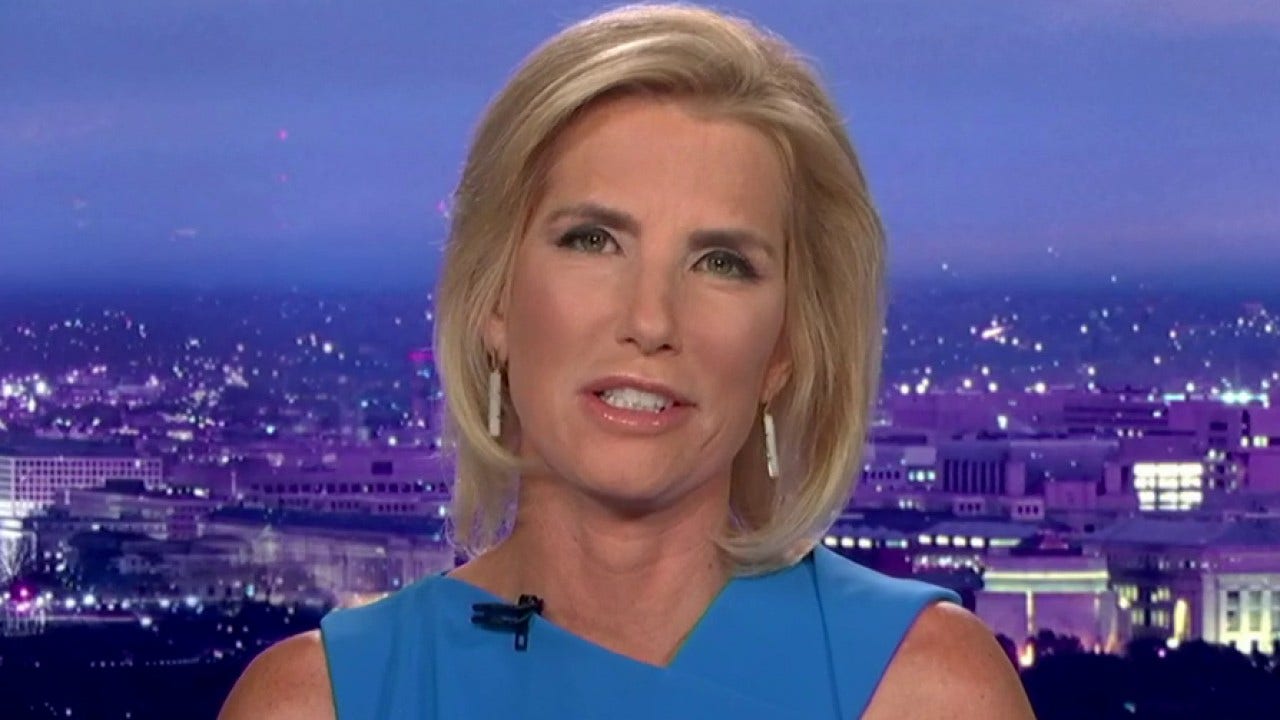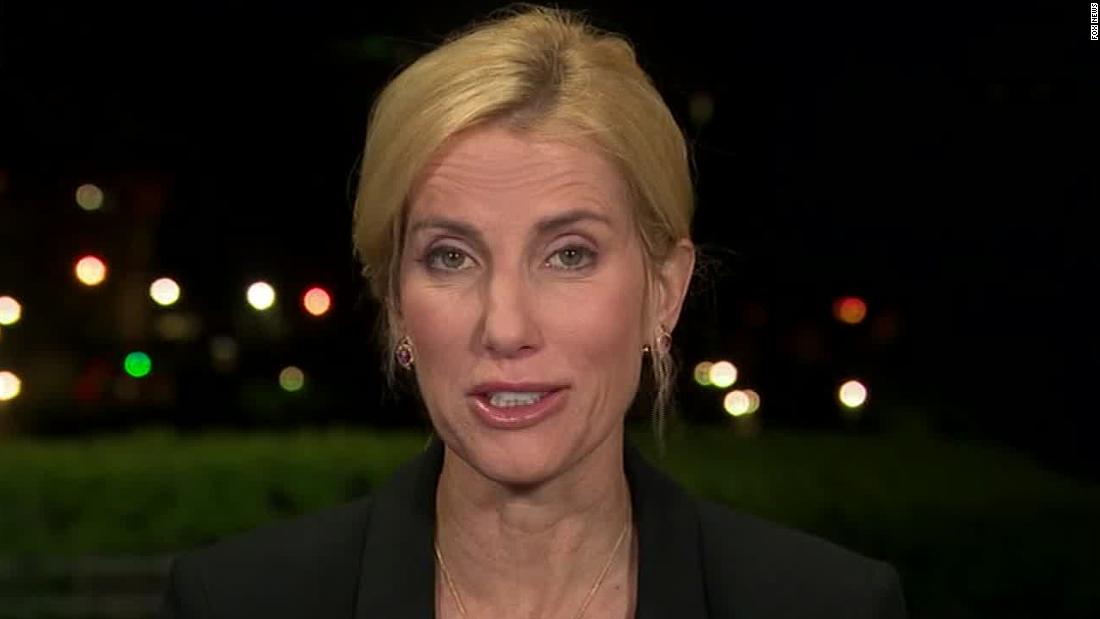Laura Ingraham's interview with Trump has ignited a wave of backlash across various platforms, sparking debates about the role of media and political discourse. The interview, which aired recently, has drawn both praise and criticism, highlighting the polarized nature of current political discussions. As media personalities navigate the complex landscape of modern politics, this interview serves as a case study for understanding how media influences public opinion.
The interview in question has brought Laura Ingraham into the spotlight once again, reinforcing her position as a prominent figure in conservative media. Her interactions with former President Donald Trump have always been closely watched, and this latest episode is no exception. The backlash that followed underscores the importance of analyzing the content and context of such interviews.
In this article, we will delve into the details of the interview, explore the reactions it generated, and discuss its implications for the media and political landscapes. By examining the nuances of the conversation and the responses it provoked, we aim to provide a comprehensive understanding of this significant event.
Read also:Isac Hallberg
Table of Contents
- Laura Ingraham's Biography
- Overview of the Interview
- Reasons Behind the Backlash
- The Role of Media in Politics
- Impact on Public Opinion
- Trump's Dynamics in Interviews
- Conservative Media's Perspective
- Liberal Criticism and Analysis
- Historical Context of Media Interviews
- Future Implications for Media and Politics
Laura Ingraham's Biography
Laura Ingraham is a prominent figure in American conservative media, known for her strong opinions and influential presence on both radio and television. Below is a brief overview of her career and personal life:
| Full Name | Laura Anne Ingraham |
|---|---|
| Date of Birth | April 23, 1963 |
| Profession | Author, Political Commentator, Radio Host, Television Host |
| Education | Columbia Law School, J.D. |
| Notable Works | "The Laura Ingraham Show," "Trump and the FBI," "The Reagan Diaries" |
As a lawyer turned media personality, Laura Ingraham has carved out a niche for herself in the world of conservative commentary. Her interviews with political figures, including Trump, have been pivotal in shaping public discourse within her audience base.
Overview of the Interview
The interview between Laura Ingraham and Trump took place during a pivotal moment in American politics, with both parties keenly aware of the audience's expectations. The conversation covered a range of topics, from domestic policies to international relations, with each point generating significant reactions.
Laura Ingraham's interview style, characterized by its directness and occasional confrontational tone, set the stage for a lively exchange. Trump, known for his unfiltered responses, delivered answers that resonated with some viewers while alienating others.
Key Topics Discussed
- Economic Policies
- Immigration Reform
- Foreign Affairs
- Political Strategy
Reasons Behind the Backlash
The backlash against Laura Ingraham's interview with Trump stems from several factors, including perceived bias, the tone of the interview, and the substance of the conversation. Critics argue that the interview failed to challenge Trump on certain contentious issues, thereby reinforcing a one-sided narrative.
Supporters of the interview, however, contend that it provided a platform for Trump to articulate his views without undue interference, offering viewers an unfiltered perspective. This divide highlights the broader debate about the role of media in facilitating balanced discussions.
Read also:Camila Cabello Nip Slip
Public Reaction
- Conservative Praise for Candid Discussion
- Liberal Criticism for Lack of Accountability
- Neutral Observers Weighing Both Sides
The Role of Media in Politics
The Laura Ingraham-Trump interview underscores the critical role media plays in shaping political discourse. Media outlets, whether conservative or liberal, have the power to influence public perception through the questions they ask and the narratives they promote.
Studies indicate that media bias can significantly impact voter behavior and policy preferences. For instance, a report by the Pew Research Center highlights how different media outlets prioritize specific issues, thereby shaping the audience's focus.
Statistical Insights
According to a survey conducted by Gallup, 60% of Americans believe that media bias affects their understanding of political events. This statistic underscores the importance of media literacy and critical thinking when consuming news.
Impact on Public Opinion
The interview's impact on public opinion cannot be overstated. Laura Ingraham's audience, primarily conservative, found validation in Trump's responses, reinforcing their existing beliefs. Conversely, liberal audiences criticized the lack of scrutiny, accusing Ingraham of facilitating Trump's agenda without challenge.
Public opinion polls conducted post-interview revealed a significant shift in sentiment among certain demographics, highlighting the interview's influence on shaping perceptions.
Key Poll Findings
- 55% of Republicans Viewed the Interview Favorably
- 70% of Democrats Criticized the Interview
- 40% of Independents Felt the Interview Was Balanced
Trump's Dynamics in Interviews
Donald Trump's approach to interviews is distinctive, often characterized by assertiveness and a willingness to challenge conventional narratives. His interactions with Laura Ingraham were no different, with Trump leveraging the platform to communicate his messages effectively.
Experts note that Trump's interview style has evolved over the years, adapting to changing media landscapes and audience expectations. This adaptability has contributed to his continued relevance in political discussions.
Interview Techniques
- Direct Messaging
- Repetition of Key Themes
- Engagement with Audience Emotions
Conservative Media's Perspective
Conservative media outlets have largely praised Laura Ingraham's handling of the interview, emphasizing its importance in providing a platform for alternative viewpoints. These outlets argue that mainstream media often marginalizes conservative perspectives, making interviews like these essential for balanced discourse.
Analysts suggest that the conservative media ecosystem thrives on creating counter-narratives, with interviews such as these playing a crucial role in shaping the discourse within their audience base.
Liberal Criticism and Analysis
Liberal critics have been vocal in their condemnation of the interview, accusing Laura Ingraham of failing to hold Trump accountable for his actions and statements. They argue that such interviews perpetuate misinformation and undermine democratic principles.
Media watchdog groups have highlighted instances where the interview deviated from journalistic standards, calling for greater accountability in media practices. This criticism reflects the broader tension between different media ideologies.
Historical Context of Media Interviews
Understanding the historical context of media interviews is essential in evaluating their significance. From the early days of radio to the modern era of digital media, interviews have evolved significantly, reflecting changes in technology and societal norms.
Historians note that interviews have always been a double-edged sword, capable of enlightening and misleading audiences depending on their execution. The Laura Ingraham-Trump interview serves as a modern example of this dynamic.
Future Implications for Media and Politics
The aftermath of Laura Ingraham's interview with Trump raises important questions about the future of media and politics. As media continues to evolve, the challenge of maintaining objectivity while catering to diverse audiences becomes increasingly complex.
Experts predict that the demand for transparent and balanced reporting will grow, forcing media outlets to adapt their strategies. This shift could lead to more nuanced discussions and a better-informed public.
Call to Action
In conclusion, the Laura Ingraham-Trump interview has sparked significant debate, highlighting the critical role media plays in shaping public discourse. We invite readers to share their thoughts and engage in constructive discussions about the implications of such interviews.
Feel free to leave a comment below or explore other articles on our site for further insights into the intersection of media and politics. Your feedback is invaluable in fostering a more informed and engaged community.


